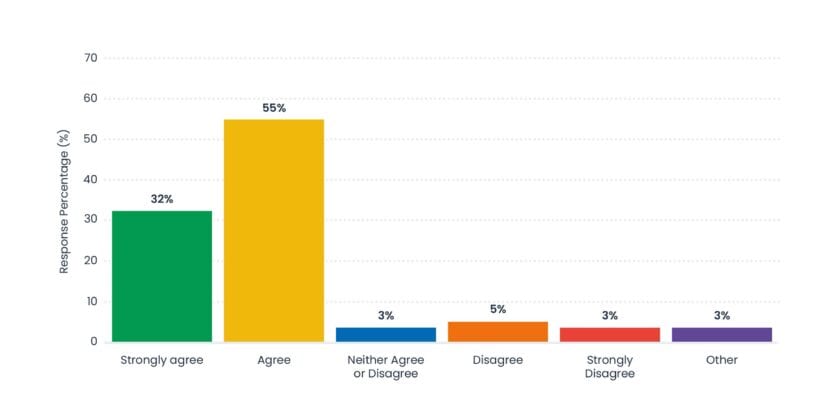Welcome back to the third part of the IntoZetta ‘Data in Housing Survey 2023’. If you missed parts one or two, please check out the May 2023 and July 2023 editions of Housing Technology.
In part two, we explored the potential barriers to implementing better data management. The answers in that section revealed an interesting split in respondents, with roughly half having the technology and resources needed to improve their data management, and half not.
Perhaps most interesting was that most respondents felt it was the culture of their organisation that was the biggest barrier to progress in this area. Cultural changes are often the hardest to implement, and while tighter regulation is driving behavioural changes, it’s preferable to lead with a carrot rather than a stick. Getting buy-in from your teams for improving data management is all about showing how it will benefit them and how they can help.
This leads us nicely into part three; are housing providers investing in data change, and how far away are they from best practice?
Within my organisation investment in data management is increasing
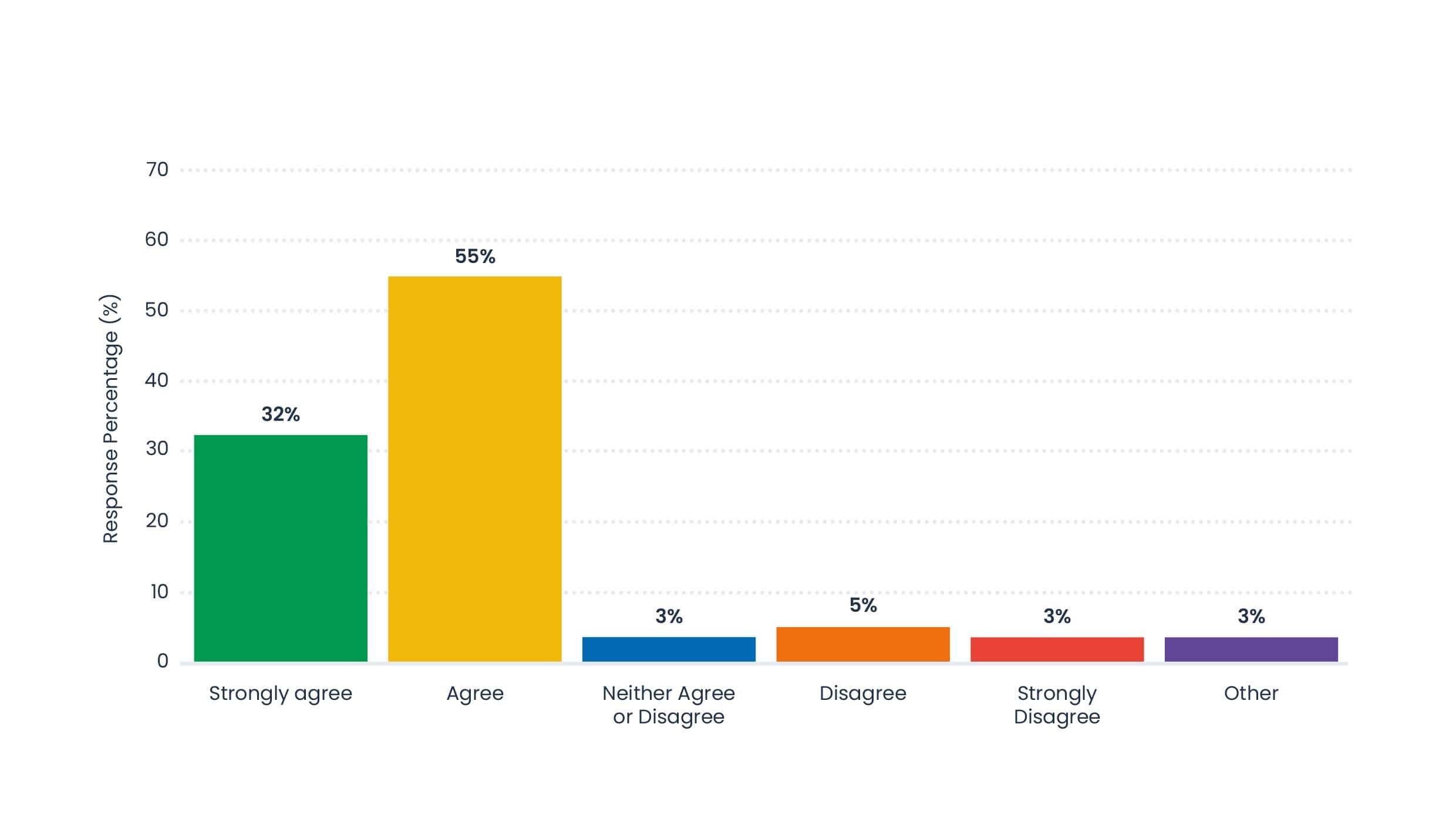
The good news here is, for 87 per cent of respondents at least, budget doesn’t seem to be a barrier; in fact, investment in data projects across the housing sector has never been higher. However, expectations on the delivery of value from those investments are also very high.
As organisations try to mitigate inflationary pressures by increasing their efficiency, how well they manage the quality and understanding of their data is under greater scrutiny.
My organisation has a good understanding of where data is created, stored and used
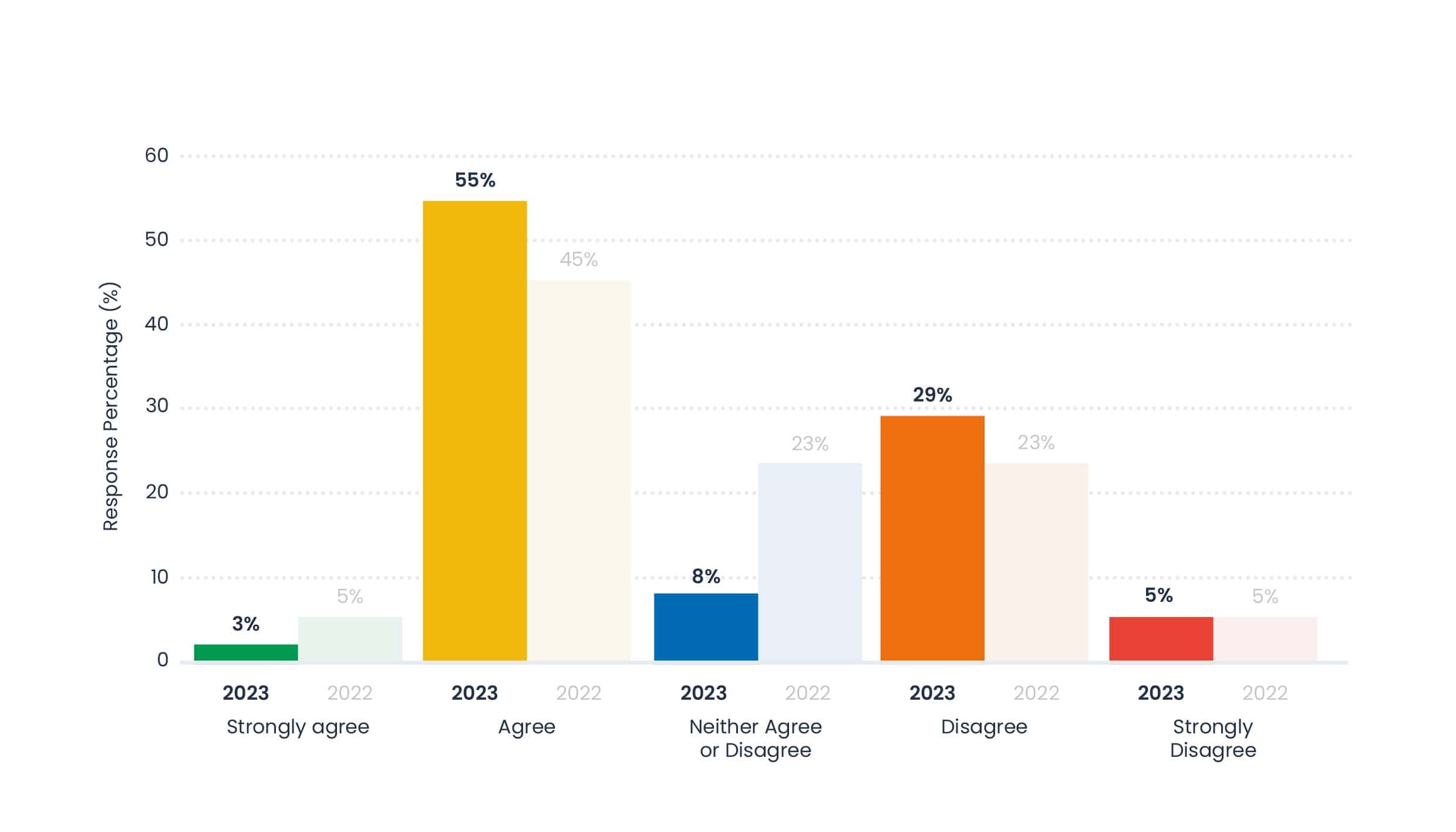
The decrease in ambivalence to this question highlights an increased understanding across the sector of what good looks like, with respondents more confident to assess their own situation.
While the majority feel that they understand their data’s journey across their operational landscape, a significant minority doesn’t. We also shouldn’t assume that ‘good understanding’ means ‘complete understanding’. For example, when considering data journeys, the ‘grey IT’ sources, such as spreadsheets, are often overlooked.
My organisation has a single trusted source for important information
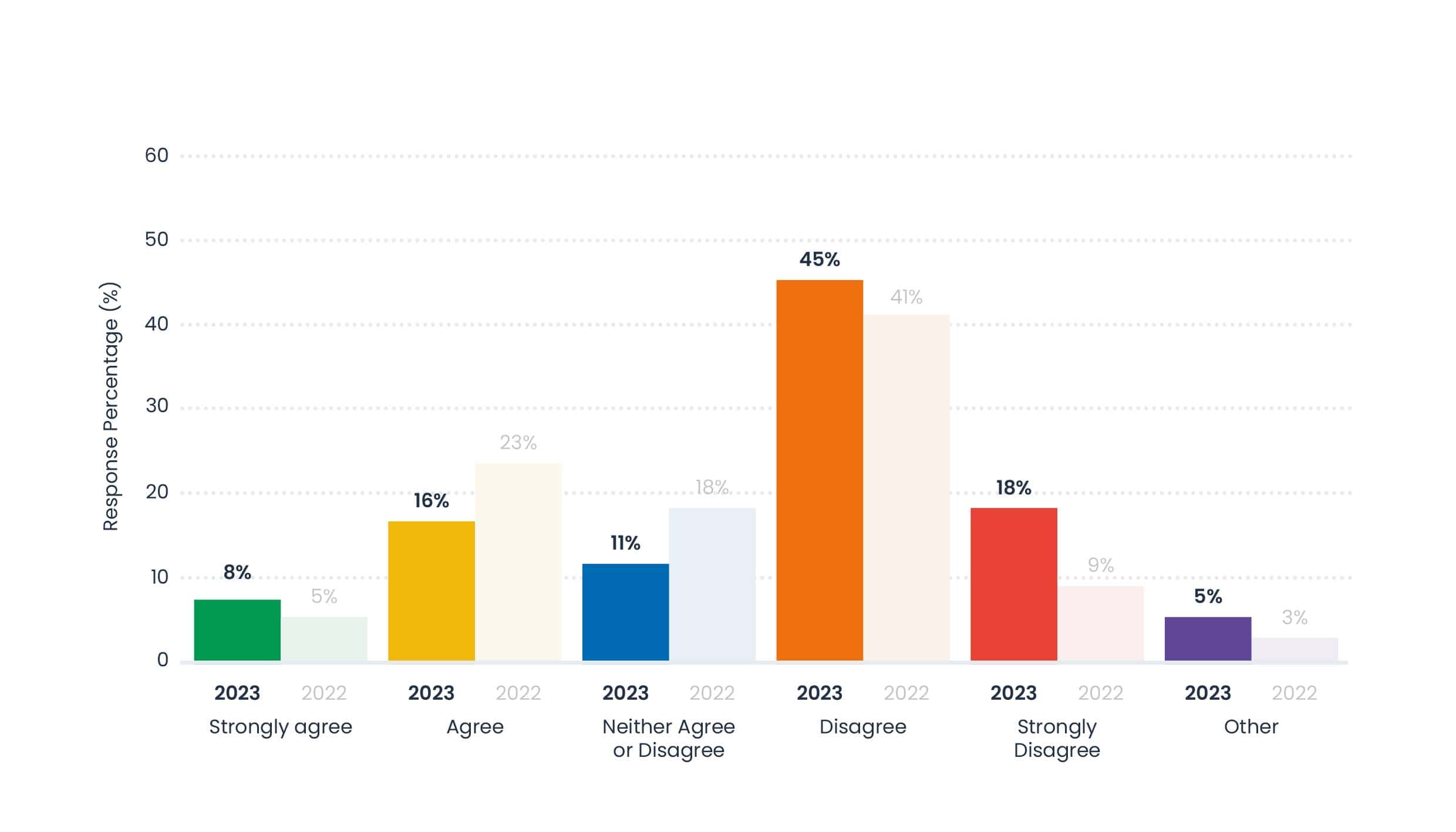
This is the crux of the problem for most housing providers. I’m always surprised that the majority of housing providers I talk to can’t confidently say exactly how many homes or tenants they actually have, let alone which of their stock are in sub-standard condition or in need of urgent repairs.
Rarely does a week go by without a story in the press about a tenant living in poor conditions somewhere in the country. How do we change that? Well, having a single source of truth for data would be transformational for most housing providers, particularly those which are the result of mergers and stock transfers.
Several options exist, such as system rationalisation, warehousing and data streaming, so the question for most housing providers should be how, not if.
My organisation only stores and uses the data that it needs
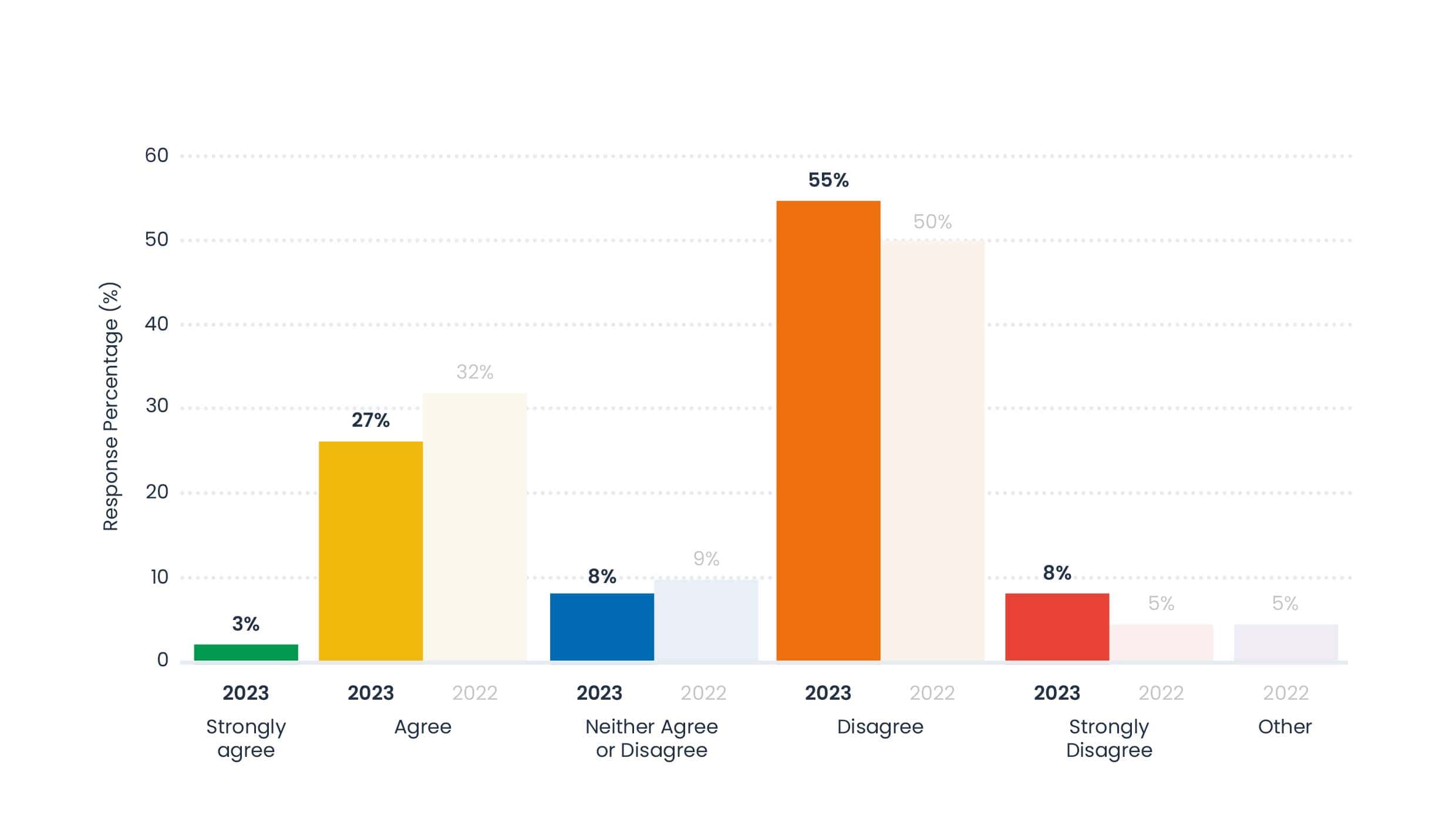
Half the battle of being on the ‘right’ side of this question is first understanding which data is needed. Many data points are collected simply because they always have been.
A very worthwhile exercise is to map out all of your business processes to understand which data they consume, and then assessing which data not included in any of those processes can be disposed of. Not only does this reduce GDPR risk, but simply by holding less data, you can also reduce your costs and environmental impact by using less server time and space.
There’s still a lot of work to do here, especially given the year-on-year decline in respondents feeling their organisation has things under control.
My organisation has important information stored in documents and shared drives
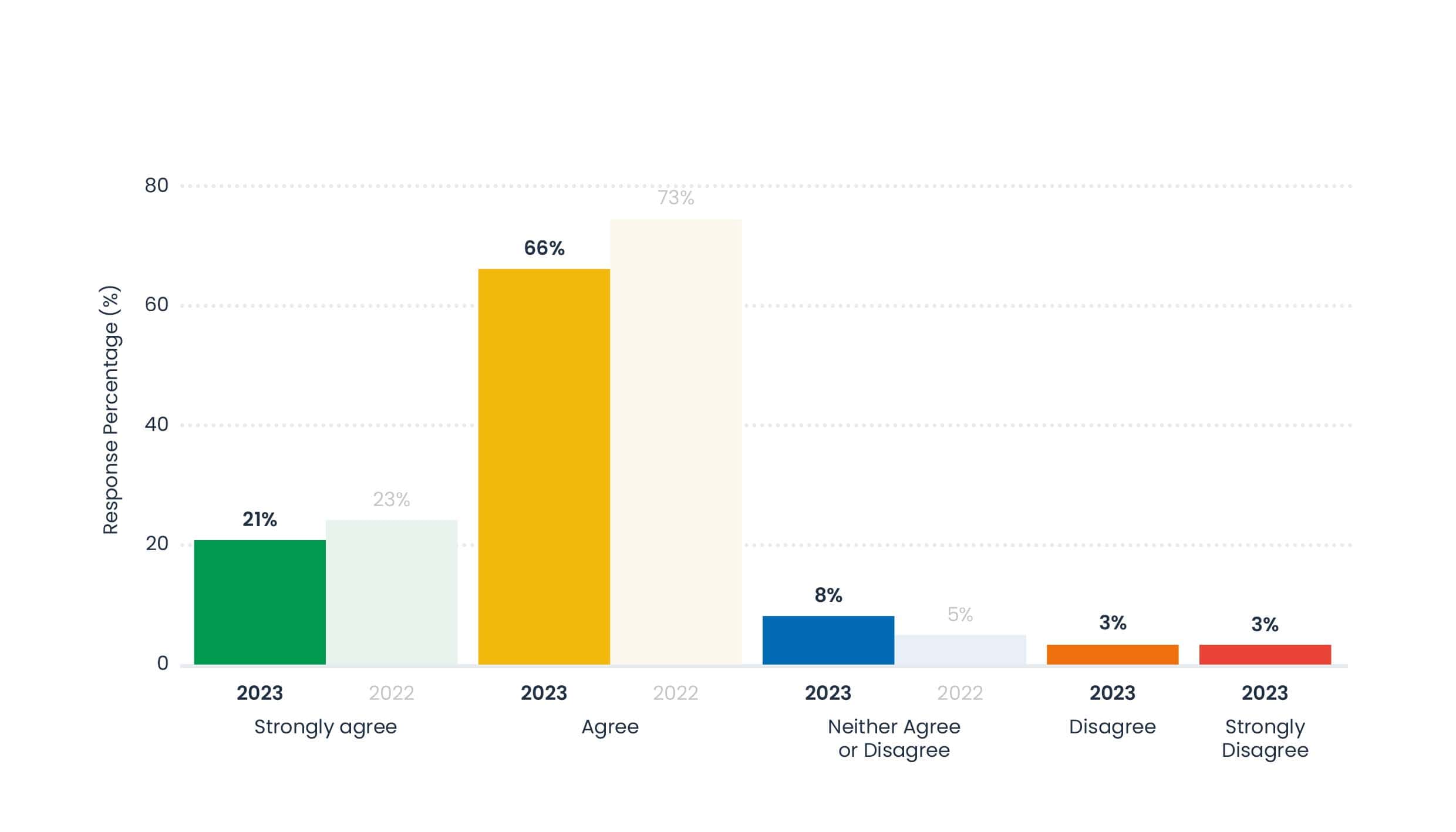
This question shows a flicker of progress year-on-year. We can see the preliminary impact of various rationalisation projects currently in-flight in the sector, with six per cent now not storing important information off-system versus none last year.
While there will always be a place for documents and shared drives, the rise in collaboration software (and accelerated during the pandemic) means there is less need for multiple copies of documents and less need for taking data outside housing providers’ core systems.
Reductions in this type of information also reduces risk, particularly from subject access requests under GDPR, and costs from additional storage.
If you are part of the 87 per cent who still have a proliferation of documents and drives like these, consider putting together a migration strategy to pull that information into properly governed and controlled sources.
Join us in the next edition of Housing Technology when we dive further into the findings from our Data in Housing Survey 2023. We’re also looking forward to debating these findings further at Housing Technology’s Data Matters 2023 event (12 September, London) – we hope to see many of you there!
And as always, if you’d like to take part in our 2024 survey or share your experience of working with data in housing, please contact us at participate@housingdatasurvey.com.
David Bamford is the delivery director at IntoZetta.

